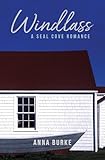Overview
I graduated Sarah Lawrence College with a BA in Liberal Arts and shortly thereafter began working in the publishing industry—first as an intern at Macmillan, with the children’s and young adult imprint Roaring Brook Press and the comics publisher First Second, and then as an assistant at the Jennifer Lyons literary agency. I started freelancing primarily as a copy editor, working on academic books and SEO for small businesses.
In 2015, I returned to school for an MFA in fiction at Emerson College. There, I worked as an editorial assistant at Ploughshares and as a developmental editor for the now-defunct young adult publisher Merit Press. I also started teaching at Emerson and the community writing center GrubStreet—the “day job” that sustained me for five and a half years and helped develop my pedagogical standards for working with emergent writers.
But I started freelancing because, simply, I wanted to help people make their writing better, and in my time as an educator, I missed having my hands on big, sprawling, messy manuscripts-in-progress. Since, I’ve collaborated with established writers and first-time authors; on novels, short stories, memoirs, essay collections, and strange in-between forms; in worlds both distant from this one and incredibly close, in historical settings, mirror dimensions, and—perhaps the strangest place of all—in high schools.
Books I’ve had the pleasure of editing have been published by big five and indie houses, ended up on “best of” lists from Tor, Elle, and the New York Times, and been recognized by GCLS; stories have appeared in anthologies and major journals; and my clients have gone on to attend Clarion West, Lambda Literary Writers Retreat, and Vermont Studio Center, among other honors. I’ve worked with small presses, journals, publishers, and individuals of all experience levels—and I’d like to work with you.
(Please note that I will not consider work produced in whole or in part by AI, and that I would never use AI in the generation of feedback or editorial letters.)
Services
Fiction
Awards
- St. Botolph Emerging Artists Award
- Rex Warner Prize
- Nancy Lynn Schwartz Prize for Fiction
- Stanley and Evelyn Lipkin Prize for Excellence in Ancient Studies
- MCC Aritst Grant
- Bread Loaf Scholar
Work experience
Bywater Books
Ploughshares
Emerson College
Ploughshares
Self-employed
Jennifer Lyons Literary Agency
Macmillan
Portfolio

Kit has 34 reviews
Professionalism
Quality
Value
Responsiveness
Rebecca P.
Mar, 2024
PinnedV. R. D.
Jul, 2023
PinnedSara S.
Mar, 2023
PinnedMymai Y.
Dec, 2025
Anca M.
Jun, 2025

Sign up to read more reviews
Create a free Reedsy account to connect with Kit and thousands of other publishing professionals on Reedsy.


















